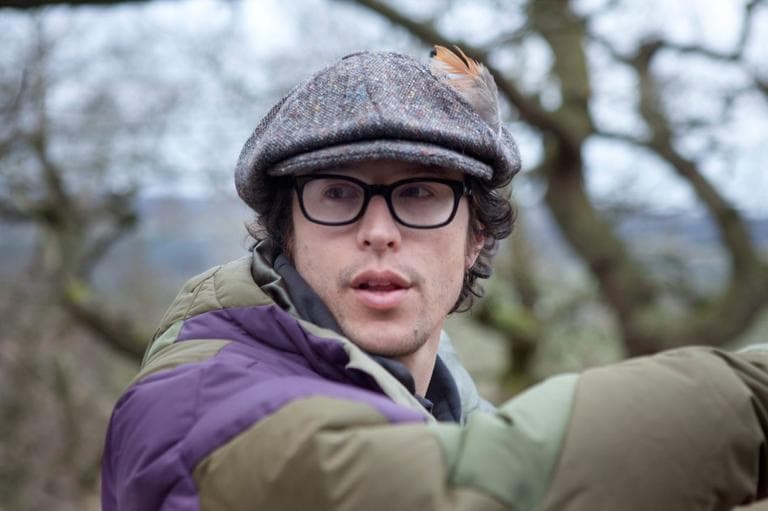Advertisement
Cary Fukunaga's 'Jane Eyre'
We talk with the young director, Cary Fukunaga, about his moving new interpretation of the Charlotte Bronte classic, Jane Eyre.
Charlotte Bronte’s “Jane Eyre” was a hit in 1847, and it’s never lost its pull.
The story - and love story- of the poor, obscure, plain young woman, Jane, who refused to live without soul and heart and dignity in a time when all three were so vulnerable, especially for a woman.
Hollywood loves this story, and its setting on the windswept moors. It’s been put on film 18 times in a hundred years.

Now, the hot young indie director Cary Fukunaga takes his turn. And it’s terrific.
This hour, On Point: we talk with director Cary Fukunaga about his compelling new “Jane Eyre.”
Guests:
Cary Fukunaga, director of the new film “Jane Eyre,” which opens in some cities tomorrow, and nationwide next Friday. He also wrote and directed “Sin Nombre,” a critically acclaimed film about Central Americans immigrants en route to the U.S.
More:
Behind the scenes of Cary Fukunaga's "Jane Eyre":
Excerpt: "Jane Eyre," (Second Edition, 1847)
By Charlotte Bronte
Preface
A preface to the first edition of ‘Jane Eyre’ being unnecessary, I gave none: this second edition demands a few words both of acknowledgement and miscellaneous remark.
My thanks are due in three quarters.
To the Public, for the indulgent ear it has inclined to a plain tale with few pretensions.
To the Press, for the fair fields its honest suffrage has opened to an obscure aspirant.
To my Publishers, for the aid their tact, their energy, their practical sense, and frank liberality have afforded an unknown and unrecommended Author.
The Press and the Public are but vague personifications for me, and I must thank them in vague terms; but my Publishers are definite: so are certain generous critics who have encouraged me as only large-hearted and high-minded men know how to encourage a struggling stranger; to them, i.e. to my Publishers and the select Reviewers, I say cordially, Gentleman, I thank you from my heart.
Having thus acknowledged what I owe those who have aided and approved me, I turn to another class; a small one, so far as I know, but not, therefore, to be overlooked. I mean the timorous or carping few who doubt the tendency of such books as ‘Jane Eyre:’ in whose eyes whatever is unusual is wrong; whose ears detect in each protest against bigotry – that parent of crime – an insult to piety, that regent of God on earth. I would suggest to such doubters certain obvious distinctions; I would remind them of certain simple truths.
Conventionality is not morality. Self-righteousness is not religion. To attack the first is not to assail the last. To pluck the mask from the face of the Pharisee, is not to lift an impious hand to the Crown of Thorns.
These things and deeds are diametrically opposed: they are as distinct as is vice from virtue. Men too often confound them; they should not be confounded: appearance should not be mistaken for truth; narrow human doctrines, that only tend to elate and magnify a few, should not be substituted for the world-redeeming creed of Christ. There is – I repeat it – a difference; and it is a good, and not a bad action to mark broadly and clearly the line of separation between them.
The world may not like to see these ideas dissevered, for it has been accustomed to blend them; finding it convenient to make external show pass for sterling worth – to let white-washed walls vouch for clean shrines. It may hate him who dares scrutinize and expose – to raise the gilding, and show base metal under it – to penetrate the sepulcher, and reveal charnel relics: but hate as it will, it is indebted to him.
This program aired on March 11, 2011.


